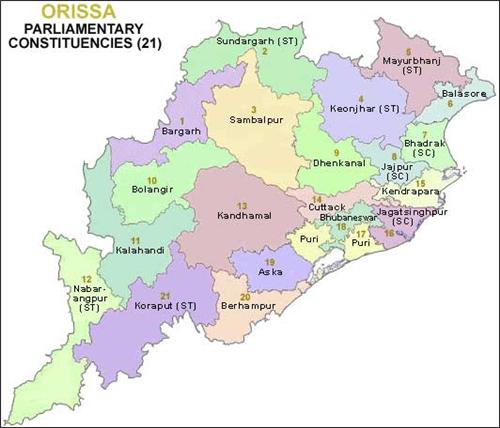
Administrative system of odisha
In the Constitution of India, which is a sovereign socialist secular democratic republic, the country has three levels of governments: the Central, the States and the Union Territories, besides the third level of governments, comprising the panchayats in rural areas and municipalities in urban areas. In India, the state governments are the level of government below the central government. Each state of the country is governed by the state government. There are 29 state governments in our country, each of which is headed by the governor and the chief minister. The CM also heads the council of ministers.
Structure of the state government
Executive
State Executive comprises the governor and the chief minister with his council of Ministers. The Governor of each state is appointed by the President for a period of five years. Executive power of the state is vested in the governor. But the actual powers for proper functioning of the state are vested in the CM and his council of ministers.
Judiciary
State high courts have jurisdiction over the whole state. In the states, the judicial setup is headed by the chief justice. He manages and controls the entire judicial system of the state pertaining to criminal, civil and all other forms of litigation. State high courts have to, however, report to the Supreme Court of India, which may override the high court’s findings and judgements.
Odisha Legislative Assembly
Odisha Legislative Assembly has 147 members elected by a popular vote conducted by the Election Commission of India. The seat of the Legislative Assembly is at Bhubaneshwar, the capital of the state. The major administrative units in the state include 30 districts, 58 sub-divisions 171 tehsils and 314 blocks. Orissa is a prosperous state with stable governance over decades. With the advent of information technology, the state has initiated e-Governance in the sectors like legislature, judiciary, or administration for improving internal efficiency in public services.
District administration
The executive is headed a deputy commissioner or district magistrate. A number of officers from the Civil Service or odisha state services helps the deputy commissioner or the district magistrate. A Deputy Commissioner of Police (DCP), is in charge of maintaining law and order and of the district.
The commissioner is assisted by the officers of the odisha Police Service or the odisha Police officials. There are others officers belonging to the state services who take care of various aspects in the state. The deputy conservator of forests preserves the forests and wildlife-related issues and concerns. The officer is from the Indian Forests service.
Most of the sector-wise development is considered by a group of officials like the Education, PWD, Agriculture, Health, Animal Husbandry etc.
OPSC Notes brings Prelims and Mains programs for OPSC Prelims and OPSC Mains Exam preparation. Various Programs initiated by OPSC Notes are as follows:-- OPSC Mains Tests and Notes Program
- OPSC Prelims Exam 2020- Test Series and Notes Program
- OPSC Prelims and Mains Tests Series and Notes Program
- OPSC Detailed Complete Prelims Notes
